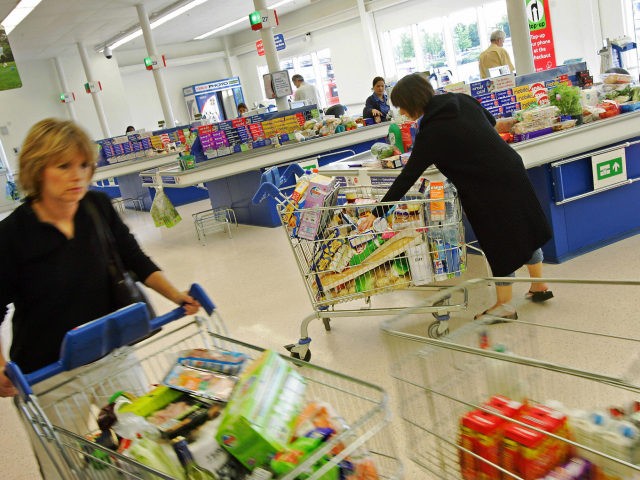Government environmental and public health proposals could drive up the price of grocery bills for poor Britons by 11 per cent — in what would be the equivalent of their entire spend on fresh vegetables, according to a food industry body.
The Food and Drink Federation’s report Eating into Household Budgets: the Government’s Recipe for Food Price Inflation examined forthcoming government recycling and healthy eating proposals.
Primarily, those include the reformation of Extended Producer Responsibility rules to extend responsibility for the disposal of post-consumer goods (like plastic bottles) to manufacturers and the introduction of a Deposit Return Scheme on food and drinks packaging, which the FDF estimates could cost £1.7 billion and £850 million respectively. While plans to introduce restrictions on the advertising high fat, salt, or sugar (HFSS) foods could cost £833 million.
The HFSS restrictions on promotions are set to come into effect from April 2022, followed by a ban on advertising before 9 pm and a total online advertising ban in January 2023. While the government is currently analysing feedback from its consultation on the proposals for Extended Producer Responsibility.
“Over the last twenty years, food and drink manufacturers have worked tirelessly to absorb increases in the cost of raw materials, while ensuring the impact of these price pressures are not passed directly onto consumers. Now, with no margin left to offset the raft of costly Government policies coming down the line, manufacturers will have to pass that cost directly on to consumers,” the FDF said in a press release on Tuesday.
Britons Should Eat Less Meat, Tax Sugar and Salt: UK Govt-Backed Review https://t.co/TvkRIh62kN
— Breitbart London (@BreitbartLondon) July 15, 2021
The FDF calculated that if these costs are passed onto the consumer, the average annual grocery bill could rise by £160. The changes would also hit poorer families the hardest, increasing a family’s food bills by 11 per cent — the equivalent of what such a poorer family would spend on fresh vegetables annually.
Ian Wright, the chairman of the Food and Drink Federation, said, according to The Guardian: “The suggestion that we should introduce further food taxes at this time is madness. It is an insult to the hardworking families of this country to be told what to do by those who can’t begin to imagine how tough the last year has been.”
The food industry body acknowledged that these rises do not factor in other potential increases for consumers, which could occur if the government accepts recommendations to tax sugar and salt.
Last week, a report by the National Food Strategy commissioned by the Conservative government recommended that Britons eat a third less meat and that salt and sugar sold for use in processed foods or in catering or restaurants should be taxed.
While Prime Minister Johnson said that he would be reviewing the report, he signalled that his initial instinct was against “extra taxes on hard-working people”.
The National Food Strategy also recommended the NHS “prescribe” fruits and vegetables to people on low incomes with poor diets. The group also recommended taxpayers’ money be diverted to the development of “alternative proteins”, later mentioning “lab-grown meat”, saying “we shouldn’t write it off”.
Ad Featuring Mother with a Baby Banned for Perpetuating ‘Harmful Gender Stereotypes’ https://t.co/1aZwROa3WD
— Breitbart London (@BreitbartLondon) August 16, 2019

COMMENTS
Please let us know if you're having issues with commenting.